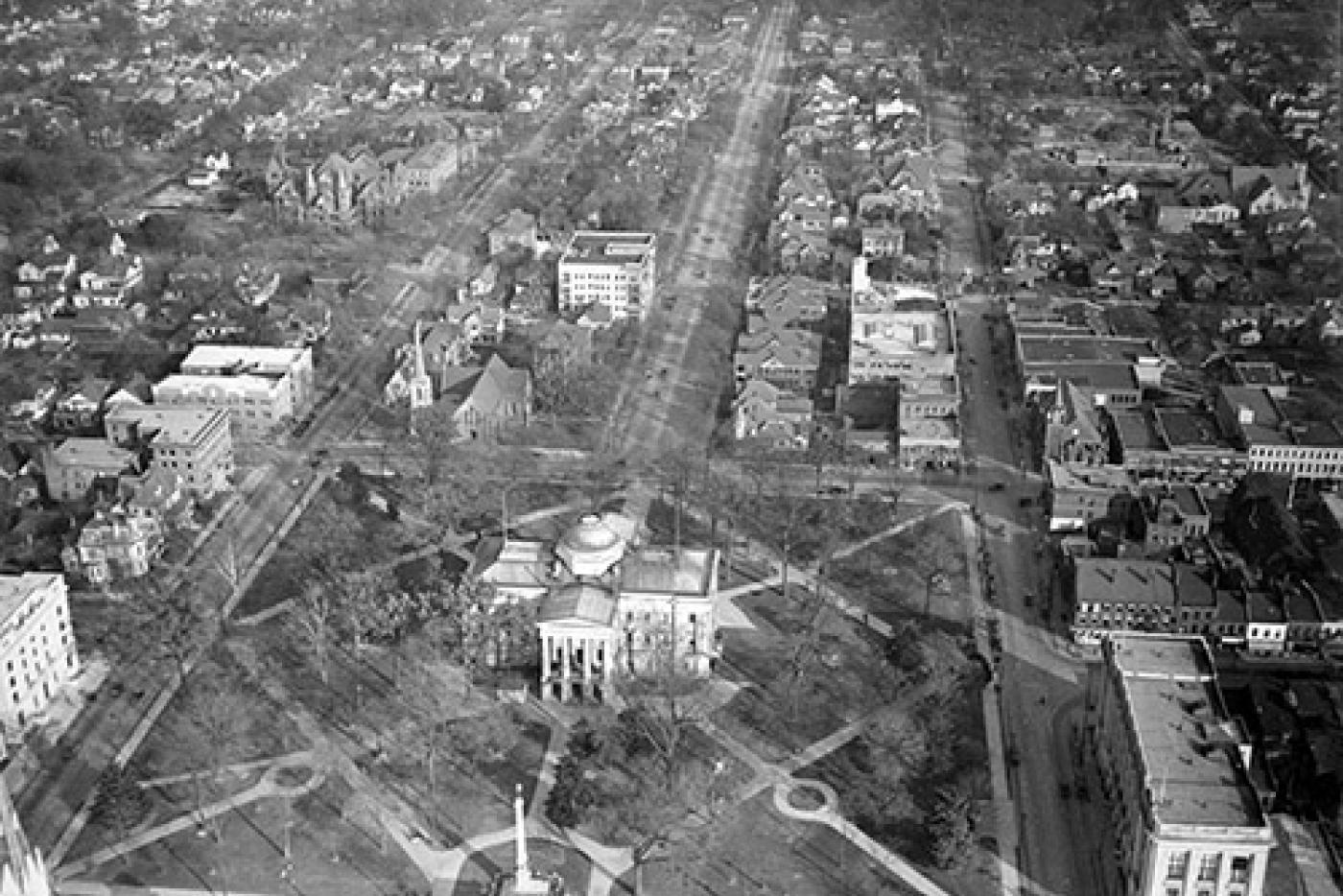Union Square is getting its own tour! Join N.C. State Capitol staff Nov. 1 at 12:30 p.m. for a guided walk to learn about the history of the six-acre property the State Capitol calls home. The N.C. State Capitol is administered by North Carolina Historic Sites, a division of the N.C. Department of Natural and Cultural Resources.
The Capitol grounds have stood silent witness to more than 230 years of both city and state history, despite often being overshadowed by the Capitol building. The grounds have also undergone many transformations during that time, from the earliest days as a public hog pasture to the beautiful grounds we have today.
Participants are invited to explore the property’s rich history up close. Meet some trees with stories to tell, discover the buried secrets of former buildings, and walk the foot paths of the enslaved people who constructed and cared for both the Capitol and its grounds. The tour starts outside the main entrance of the Capitol and lasts approximately one hour. The bulk of the walk is entirely outdoors on flat, paved areas. This event is weather-dependent, and participants should dress according to the weather. Meet at the Capitol’s public east entrance, located at 1 Edenton St., Raleigh. This event is free and open to the public. No registration is required. Tour groups are capped at 20 people.
The State Capitol’s mission is to preserve and interpret the history, architecture, and function of the 1840 building and Union Square. It is within the Division of State Historic Sites within the N.C. Department of Natural and Cultural Resources and located at 1 Edenton St., Raleigh. For additional information please call 984-867-8340 or visit https://historicsites.nc.gov/capitol.
About the North Carolina Department of Natural and Cultural Resources
The N.C. Department of Natural and Cultural Resources (DNCR) manages, promotes, and enhances the things that people love about North Carolina – its diverse arts and culture, rich history, and spectacular natural areas. Through its programs, the department enhances education, stimulates economic development, improves public health, expands accessibility, and strengthens community resiliency.
The department manages over 100 locations across the state, including 27 historic sites, seven history museums, two art museums, five science museums, four aquariums, 35 state parks, four recreation areas, dozens of state trails and natural areas, the North Carolina Zoo, the State Library, the State Archives, the N.C. Arts Council, the African American Heritage Commission, the American Indian Heritage Commission, the State Historic Preservation Office, the Office of State Archaeology, the Highway Historical Markers program, the N.C. Land and Water Fund, and the Natural Heritage Program. For more information, please visit www.dncr.nc.gov.

